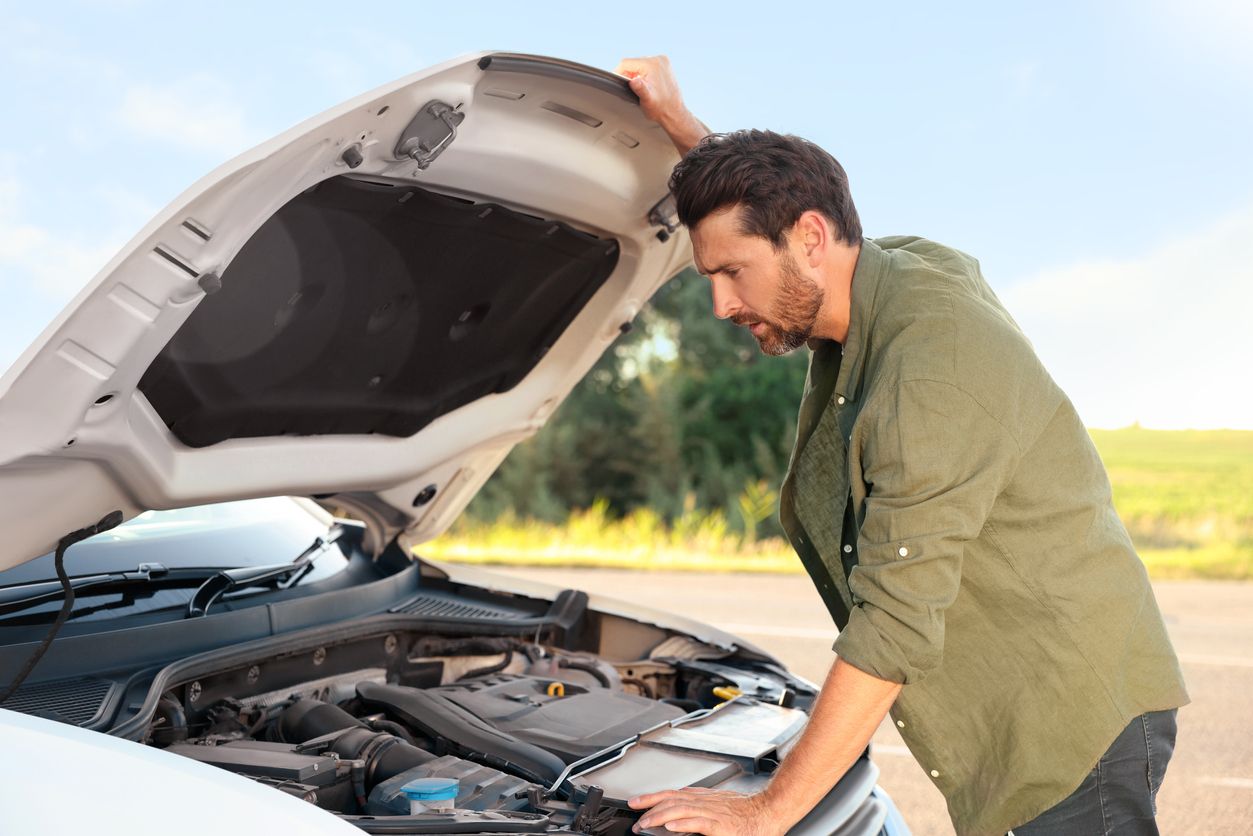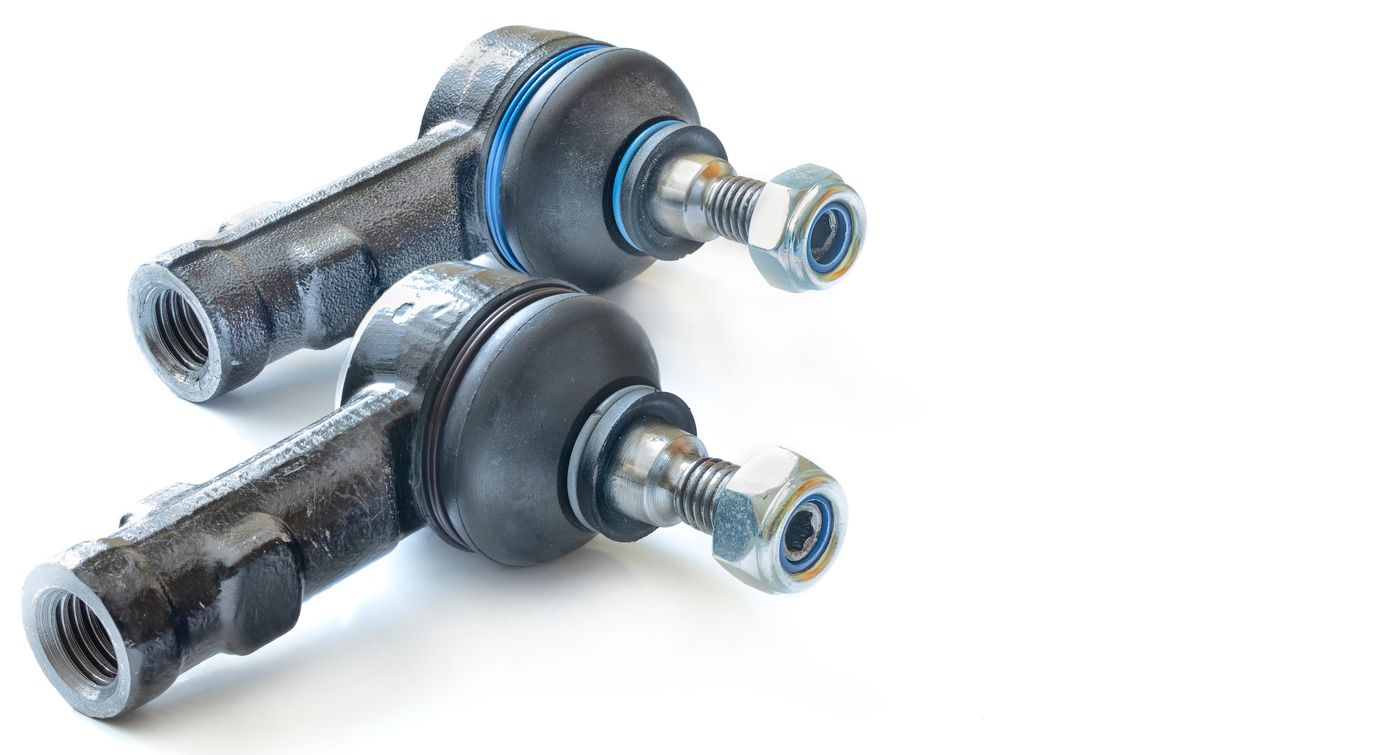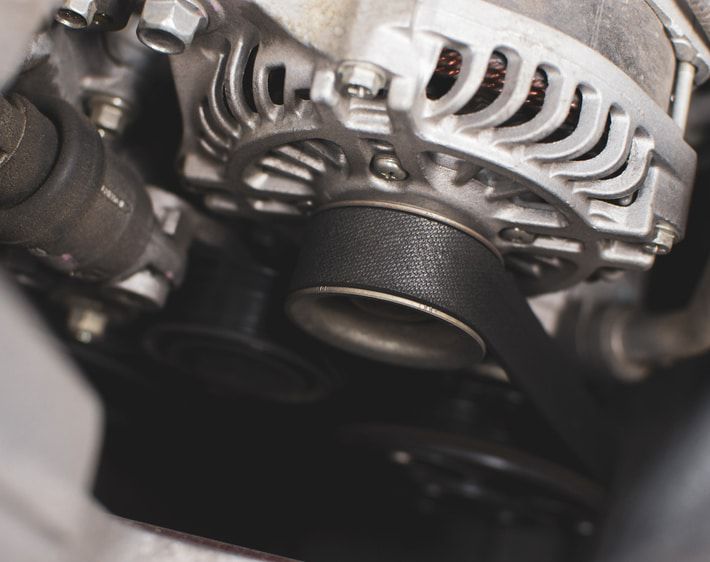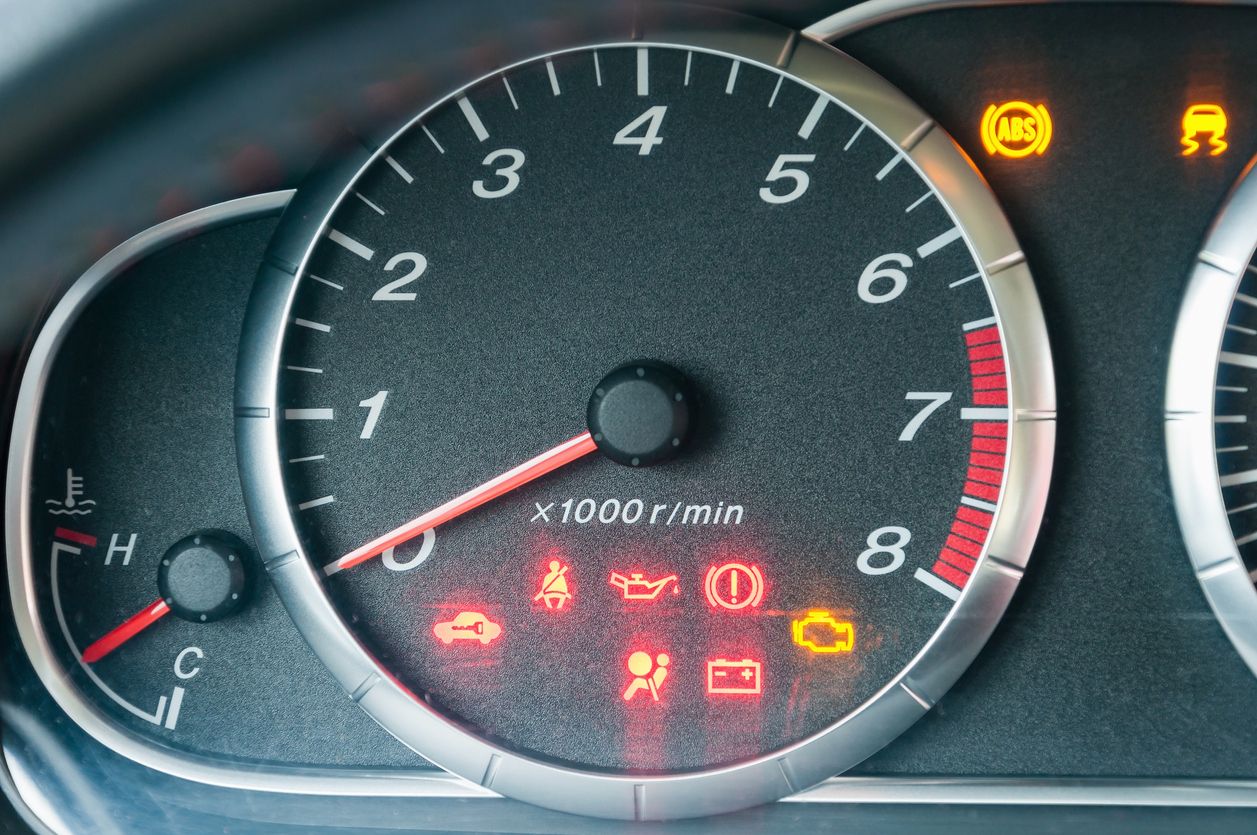An engine misfire can feel like a hiccup in your car’s performance — unexpected, disruptive, and impossible to ignore. One moment, you’re cruising smoothly down the highway, and the next, your vehicle is jerking, stumbling, or struggling to keep up. Worst of all, engine misfires can lead to major headaches if left unchecked.
While you may have heard of misfires before, knowing how to detect and address them early on is crucial. Read on to learn everything you need to know about engine misfiring. We’ll provide answers to some of the most common driver searches, like “How to tell if my car is misfiring,” “What would cause an engine to misfire?” and more.
What is an Engine Misfire?
If combustion is the heartbeat of your engine, a misfire is a miniature heart attack. During regular operation, your engine’s cylinders fire in a precisely timed sequence, ensuring smooth, uninterrupted operation. When a misfire occurs, combustion timing is disrupted, igniting air and fuel at the incorrect moment or not at all — resulting in anything from a momentary hiccup in power to a persistently rough-running engine, depending on the severity and frequency of the misfire.
What Does an Engine Misfire Feel Like? (And Other Symptoms)
Returning to our heartbeat analogy, an engine misfire often feels like your engine is “skipping a beat.” Misfire victims frequently report experiencing a rough idle, jerking, or stumbling while accelerating or a noticeable general loss of power. And if you feel like you’re spending more money at the pump — you probably are. Misfires often result in a significant drop in fuel economy because they cause your engine to work harder and consume more fuel to produce the power it should.
In addition to inconsistent or unsatisfactory performance, you may also notice sounds, smells, or visual indicators, such as:
- Popping, banging, knocking, or even sneezing noises
- Strong exhaust odors that smell like unburnt fuel
- An illuminated or flashing check engine light
Why is My Engine Misfiring?
So now you know the symptoms of a misfiring engine — but what can cause a misfire in the first place? Engine misfires often result from one of the three essential combustion components — air, fuel, or spark — failing to do their job correctly. Let’s highlight the most common culprits of misfiring in each area so you can better understand what might be happening to your vehicle.
Air
Like humans, engines need to both inhale and exhale. Air enters the engine, mixes with fuel, and burns in the combustion chamber, with the resulting waste gasses exiting through the exhaust system. Problems in your intake or exhaust system like the ones below can throw this process out of balance and cause a misfire:
- Bad Oxygen (O2) Sensor: Your vehicle’s O2 sensor monitors the amount of oxygen left in its exhaust gasses and sends this information to the onboard computer to determine the proper air-fuel mixture. A faulty O2 sensor may feed inaccurate data to the computer, leading to a lean (too little fuel) or rich (too much fuel) air-fuel mixture that disrupts combustion.
- Bad Mass Airflow (MAF) Sensor: Modern vehicles rely on MAF sensors to measure the amount of air entering your engine. If your MAF sensor is malfunctioning, the engine’s computer can falsely believe it’s receiving too much or too little air, resulting in the same lean or rich air-fuel mixture that a bad O2 sensor can cause.
- Exhaust System Issues: A clogged catalytic converter or smashed exhaust pipe can create backpressure that disrupts engine performance, potentially leading to a misfire.
- Vacuum Leaks: As combustion happens inside of your engine, vacuum pressure is also produced, which sucks more air in to fuel the combustion process as needed. Leaks in your engine’s intake manifold gasket or vacuum hoses can allow extra air to enter the system, upsetting the air-fuel mixture and potentially causing misfires, especially when idling.
Fuel
If combustion is the heart of your vehicle, and air is the lungs, then fuel is the calories it eats to produce the energy it needs. As such, fuel delivery is crucial to proper combustion. If there’s an issue with how fuel is stored, filtered, or delivered, such as the ones below, your engine may struggle to fire properly:
- Fuel Injector Issues: Fuel injectors spray exact amounts of misted fuel into the combustion chamber at precise intervals. If an injector becomes clogged or fails, the cylinder won’t receive enough fuel to ignite correctly, causing a misfire.
- Clogged Fuel Filter: Over time, the fuel filter can become blocked with debris or varnish from old gasoline, restricting fuel flow to the engine. This can lead to fuel starvation, a lean air-fuel ratio, and misfiring — especially during acceleration.
- Bad Fuel Pump: The fuel pump pushes fuel from the gas tank to the engine. If it’s weak or failing, it may not produce enough fuel pressure to maintain consistent combustion, leading to misfires — especially when your vehicle is moving at high speed, or the engine is under load.
Spark
Your ignition system is the nervous system of your vehicle — it’s responsible for creating and delivering the spark needed to ignite the air-fuel mixture in your engine’s combustion chamber. So, when any component of this system fails — especially the three below — it can cause misfires and reduced performance.
- Faulty Spark Plugs or Plug Wires: Your spark plugs jump voltage between two electrodes to create a combustion-inducing spark. With the repeated heating, cooling, and general stress of combustion, the gap between those electrodes can widen, making it more challenging to produce a spark. Additionally, lean air-fuel mixtures can damage the electrodes, while a rich mixture can cover them in soot and gunk — both of which increase the voltage required to jump the gap. Similarly, damaged or worn plug wires can interrupt the flow of electricity to the spark plugs, causing irregular firing.
- Bad Ignition Coil(s): Ignition coils generate the high voltage required to create a spark at the plugs. A failing coil can produce weak or inconsistent voltage, leading to misfires, especially under load or at higher engine RPMs.
Other Mechanical Problems
While issues with air, fuel, or spark are the most common causes of engine misfires, other mechanical problems like the following can signal that your engine needs service.
- Worn Piston Rings: Piston rings seal your engine's combustion chambers, preventing excess oil from entering the cylinders and maintaining the proper compression needed for efficient combustion. When they become worn or damaged, compression drops, power reduces, and your engine may exhibit poor fuel economy, increased oil consumption, and misfiring.
- Faulty Timing Chain or Belt: Your vehicle’s timing chain (or belt, depending on the make and model) ensures that its engine’s valves open and close in sync with the movement of the pistons. If the timing is off due to a stretched chain or a slipping belt, the combustion process can occur at the wrong time, resulting in misfires and potentially severe engine damage.
Can I Drive My Car if It’s Misfiring?
We don’t recommend driving with a misfiring engine. While you may physically be able to drive the vehicle, continuing to operate it in this condition can lead to worsened performance, increased fuel consumption, further damage, and, ultimately, complete engine failure.
If your engine starts misfiring, it’s vital to identify the root cause as soon as possible. Whether it's a simple fix like a faulty spark plug or a more complex issue like worn piston rings, swift resolution is the best way to prevent costly repairs in the future.
How to Fix a Misfiring Engine
An engine misfire can be a frustrating and confusing issue, and repairing it yourself is not for the faint of heart, but quickly addressing it is essential to keeping your vehicle in top shape. At Firestone Complete Auto Care, we offer various services to diagnose and fix engine misfires, from spark plug replacements to fuel system cleanings and engine repair services. If you think your engine might be misfiring, schedule an appointment online or stop by your nearest location for knowledgeable care and maintenance.



